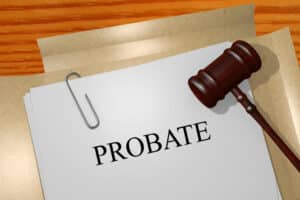
This process is necessary to transfer ownership of the deceased person’s property and assets to their rightful heirs. Without probate, the assets of the deceased person may remain in legal limbo, which can create issues for the deceased person’s family and heirs.
The DE-111 California Probate form is a petition for probate of will and for letters testamentary, which is used to initiate the probate process in California. The form must be filled out and filed with the appropriate court in the county where the deceased person lived at the time of death.
To fill out the DE-111 form, you will need the following information:
- The full name, address, and phone number of the person who died (the “decedent”)
- The date and place of the decedent’s death
- The names and addresses of the decedent’s surviving spouse, children, and any other heirs
- The names and addresses of any executors or administrators named in the will, if there is one
- A copy of the will, if one exists
It is important to be as accurate and complete as possible when filling out the DE-111 form, as any inaccuracies or omissions can delay the probate process.
Practice Areas
Estate Planning
Estate planning is the process of establishing a Trust, Will, Durable Power of Attorney, and other related documents during your lifetime.
Estate Administration
Probate
Probate is the legal proceeding supervised by the Superior Court used to transfer title to assets when a person is deceased.
Estate Litigation

Advanced Estate Planning
Families with substantial estates require additional strategies beyond a typical Estate Plan to reduce and offset Estate Tax liabilities.

Conservatorship
Our Locations
The quickest way to get assistance is to contact us directly at 310-316-2400 or by emailing us at info@ledwitzlaw.com.
Life Events

New Families

Nearing Retirement

Recent Loss
Recent Blogs
Estate Planning For Your Children – It’s Not Just About The Money
Most people near the age of majority do not have large estates (money or property) and many families assume that this means an estate plan is completely unnecessary. This is simply not true. A comprehensive estate plan does much more than protecting property from probate and directing the disposition of assets—estate plans also tell medical and financial institutions who is authorized to make decisions on your behalf. Without current, effective documents, these institutions may refuse to release medical information and will likely not allow family members to make healthcare decisions.
DOMA and Estate Planning
Recently the United States Supreme Court ruled on United States vs. Windsor—a case that argued the constitutionality of the Defense of Marriage Act (DOMA). DOMA’s Section 3 controversially defined a “marriage,” for federal tax law and benefits, as only between one man...
Spring 2014 Newsletter
Portability Explained Preserving Estate Tax Exemptions for Married Couples.
You’ve Been Named Successor Trustee – What Does That Mean?
FREE SEMINAR – SUCCESSOR TRUSTEE DUTIES – Wednesday April 9, 2014 at 2:00 p.m 970 W. 190TH STREET, TORRANCE, CA 90502
Spotlight: Accident Law, The Most Important Thing You Can Do Before Your Accident By James L. Pocrass, Esq. Pocrass & De Los Reyes LLP
WHEN WAS THE LAST TIME YOU REVIEWED YOUR TRUST? WE OFFER FREE THREE YEAR REVIEWS!
Client Reviews
As Seen in...

Awards, Certifications and Accolades






